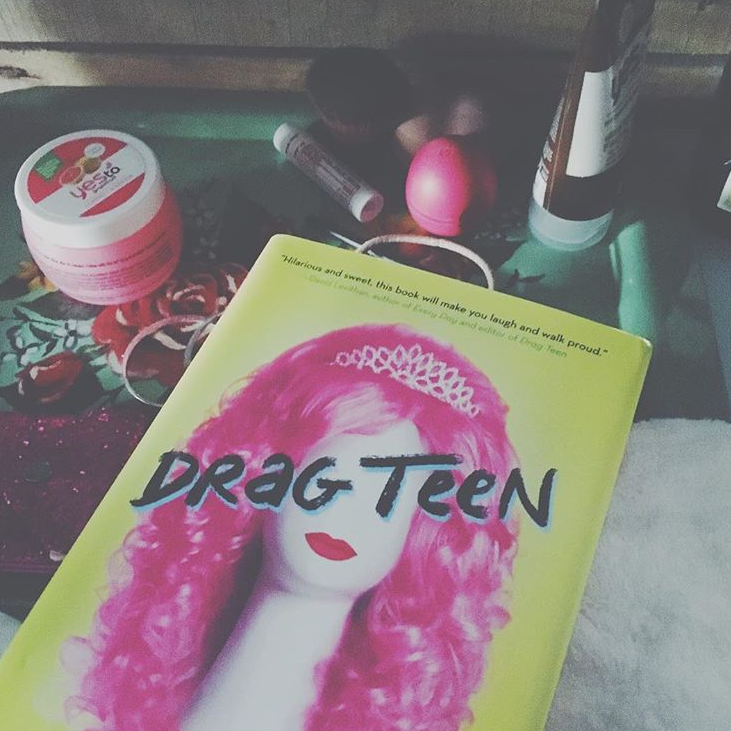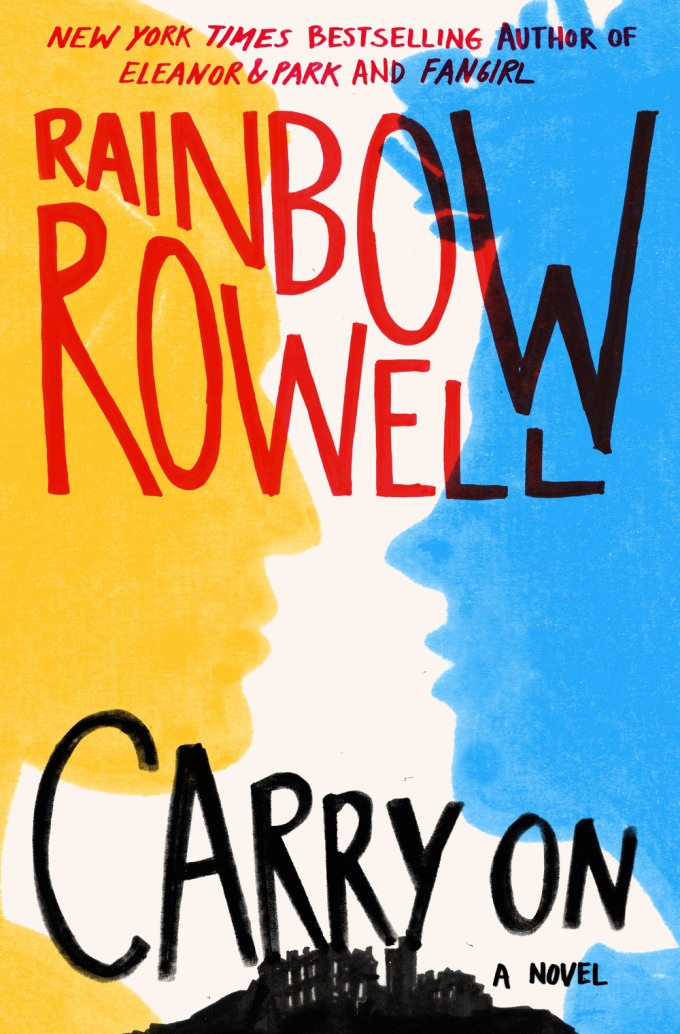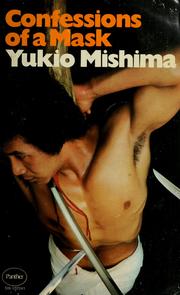 Thanks for all the moral support, peeps, David, Timmy and Nicole. Javin saw objectively the novel as good with complex characters and their desires but personally, he disliked the bucolic setting. Nicole liked it because it’s English. Raj was neutral while Alex thought that it is unoriginal. Josh liked its realism.
Thanks for all the moral support, peeps, David, Timmy and Nicole. Javin saw objectively the novel as good with complex characters and their desires but personally, he disliked the bucolic setting. Nicole liked it because it’s English. Raj was neutral while Alex thought that it is unoriginal. Josh liked its realism.
1. Characters
a. Grandpa Cord: Nicole’s favorite character 100 pages into the novel. Cord is adorable, fun, astute and open-minded. Josh said Cord has unconditional love.
b. Estelle: Josh’s favorite character. He argued that she shows a limited form of empowerment for women at that point in history; she is “sane in being insane” and see things clearly. He noted that what Estelle cannot achieve in her life, that is piecing pieces together, she does it by sewing. Josh and Nicole reminded us that the novel should be read historically, that is, Nicole mentioned, Estelle’s insanity could be a tool of oppression of men. Raj, Alex and Josh believed that it is very empowering for Estelle to lie still and order Sonny to impregnate her. Aaron wondered aloud if Tremain is critiquing the characters in the book: both Cord and Estelle are perceptive characters and yet none of them does anything to help Martin: is Tremain trying to say, “Kind intentions are not enough, one must act on it?”
c. Walter: Alex’s favorite character because Walter never gives up on his dreams but Nicole called him a spineless “wank” although he too grows balls at the end and goes after his dreams. After a discussion, we concluded that Walter’s sexuality is fluid; he likes the person because s/he is kind to him. Aaron brought up a quote found in the book, “Souls have no gender,” which is perhaps the moral of the story.
d. Edward: Raj firmly believed that Indians have a prerogative on reincarnation and was flabbergasted by Edward but both Josh and Alex found him hot and philosophical.
e. Pearl: Aaron was quite repulsed by the angelic, 2-D portrayal of Pearl whom Alex called “a vacuous, boring woman.” Nicole added that even her name is a precious thing, not human. Josh defended Tremain and said that there are people, who are loved all their lives, who turn up nice and boring and colorless.
f. Georgia: We loved a minor character, a cougar who preys on Martin, who–Alex observed–is as violent as Sonny, Martin’s father. The irony, Raj said, is that she’s incapable to control her own emotional world when her occupation is Aunt Agony.
2. Themes:
a. Family:
i. Mothers & Sons: Alex and Javin claimed that Estelle (mother) doesn’t understand Martin although Josh disagreed with them. Alex and Javin said that because Estelle couldn’t understand Martin, she doesn’t help him. Nicole countered that Estelle is clinically depressed, which renders her incapable of actions in the first place. As a group, we saw Estelle’s apology as a form of helpless; she realizes in the end that she ought to be supportive of Martin, which she has failed to do so.
Raj brought up the relationship between Gilbert the Dentist and her mother, that mothers always know sons’ sexuality. Alex noted a point that the crumbling coastline is metaphorical of the erosion of family. Aaron mentioned that all mothers should police their children, very hawk-eyed, and wondered what Tremain is trying to say.
ii. Violence In the Family: Josh shrewdly pointed that the Martin is perpetuating the violence he has learnt from his father, Sonny, when he tries to rape Pearl.
iii. Sibling Rivalry: Javin contended that Martin is jealous of Timmy because Timmy not only robs away Sonny’s affections but, to Martin, he believes he is a boy too and feels indignant when Timmy gets the attention that he should be getting. Aaron opined that while Martin treats Timmy with hostility, Timmy is always deferential to Martin. Josh continued that the sibling rivalry is because of the failure of the parents to love the children for who they are, causing the tragedy of their lives.
b. Rage/Hatred: Josh criticized that Martin is driven by hatred and rage and the novel is a journey for Martin to come to terms to himself and people around him. Whether this be true or not, Aaron imagined, “Wouldn’t you be angry and full of hatred too if you were born in a body of the ‘wrong’ sex? I know I would, especially when there is no support.” Josh also very perspicaciously discerned that Martin hasn’t gone for a full operation yet and is still searching for himself.
c. Country VS City: A common perceptive of the group is that we think country people would be more narrow-minded but Tremain doesn’t fall into this fallacy. Everyone seems to accept Martin for who he is: the country characters do it tacitly probably because they suffer much too and can understanding suffering, while the City people accept diversity, although Raj sharply pointed out that the City people are African and Australian, all outsiders, not English.
d. Love: Does Martin attend Pearl and Timmy’s wedding? Alex claimed it was ambiguous since Estelle hears Martin call her. Aaron pointed out how idiosyncratic Pearl’s reason for marrying TImmy, that is, he has hands that will never produce beautiful handwriting. Raj and Josh believed that she is merely settling. Raj argued that Pearl can never love Martin because Martin has killed Mary, while Aaron was more inclined to Josh’s thinking, that Pearl does love Martin and Timmy is a substitution for Martin.
e. Knowledge: What is the point of Timmy’s right angle? Aaron suggested that there are two angles to look at it: (i) the lines when extrapolated will never meet, as mentioned in the novel, and the non-meeting of the lines demonstrates the solitude and isolation each character feels. To support this assumption, Timmy tries to tell someone about his puzzlement with the right-angle and no one would listen to him. (ii) If the novel is seen as a bildungsroman, both Timmy and Martin try to make sense of the world through knowledge. Martin has his Book of Inventions. They need explanations to themselves why they are who they are. They are finding their way and they need information.
f. Gender: We loved the complex and balanced representation of both genders, without falling into the what-masculine-is and what-femininity-is trap.
g. Sexuality/Cougarism: Aaron, playing devil’s advocate, asked, why is Gilbert, the only gay man in the novel, incapable of loving, so callous? Is it homophobic? No direct evidence from the novel to this, but the group’s gut feeling is it is not homophobic because the novel is so sympathetic.
There are also many cases of cougarism in the book, notably, the Gypsy-Walter and Georgia-Martin.
h. Animals: include Marguerite, the hen (Raj’s favorite character); Sonny’s dog, Wolf; the Psychiatrist’s fish; Pearl’s visit to the Natural Museum where Pearl informs Martin about the myriad of animals; Pete who killed a dog because it was fucking him; a parable of two cubs eating up their mother bear who was snared in a trap. Even Timmy is described as a frog: “Timmy’s frog’s eeyes were filled with tears. ‘No,’ he replied. ‘Never. Not since I gave up butterfly.” Alex evoked the multitude of animals as “souls,” linking the animals with Edward’s theory of reincarnation. Edward says maybe Martin’s soul is a marmoset. Aaron claimed that Tremain may have two intentions: (i) Wolf is used to redeem Sonny. Sonny is obviously capable of deep devotion and love but his incapability to express his emotions mars his life. His emotional turmoil and pain in killing off Wolf is unimaginable. And (ii) See below 3b, Repetitions & Multiple Voices.
i. Politics/ War: Aaron asked for the significance of starting with the death of King George. Nicole regarded it as setting a timeline for the story; Raj proposed that it allows Martin a quiet time to reflect, and it’s a time to signify change while Alex stated the incident reflects the dynamics of the family. While all the reasoning are true and sound, we could not help to feel that there is something deeper that we were not getting, especially with the heavily political nuances going on in the novel and Sonny being a WWII veteran. Do the politics parallel the family structure in England?
3. Style:
a. Title: Alex inquired over the significance of the title. Aaron quoted from Grandpa Cord: “He said beass rubbings were ghostly things in two sense and everything important in life was dual, like being and not being, male and female, and there was no country in between. I sat on the toilet and… thought, Cord is wrong, there is a country in between, a country that no one sees, and I am in it.” In other words, Aaron surmised that Tremain is advocating a postmodernist world, a world that has shades from black to white, from male to female. That is the “Sacred Country.”
b. Repetitions and Multiple Voices: Many characters share the same fate: the mothers are police; the children move away; Estella’s trance, enraptured by a tap-dancer, in the asylum is repeated when Walter, Sky and Martin go to Pryland, biggest parking lot in the world, and Sky roller skates, captivating the men. Aaron asserts that the repetitions, the multiple voices and the animals all point to how Tremain writes about the human condition, that we, including the animals, share a common existence, a common history, a common story, we suffer in the world and so we shouldn’t cause more suffering to Martin, Walter, to humans and to other living beings. We should help alleviate the suffering by being sympathetic and understanding, as in shown in the sympathetic style and non-judgement of the author towards the characters. This is truly a tremendous, extraordinary, compassionate novel, a novel that makes the world a better place.
*
After the discussion, Raj, Aaron and Alex appreciated the book better and found it more meaningful.





 Dunno what nth discussion because someone hasn’t written the past discussions yet. *passive aggressive mode on* Just kidding.
Dunno what nth discussion because someone hasn’t written the past discussions yet. *passive aggressive mode on* Just kidding. These are some of the things we talk about:
These are some of the things we talk about:
 The biggest complain we had about the book was the way it was written: Dominic felt it was unlike the “Japanese style of writing”, comparing Mishima to Murakami. Raj thought the book was draggy, describing “mundane things in mundane ways.” Alexius did not like the ending and was left disappointed by the book. Timmy found it uninteresting as a whole.
The biggest complain we had about the book was the way it was written: Dominic felt it was unlike the “Japanese style of writing”, comparing Mishima to Murakami. Raj thought the book was draggy, describing “mundane things in mundane ways.” Alexius did not like the ending and was left disappointed by the book. Timmy found it uninteresting as a whole. From St. Joan to St. Sebastian
From St. Joan to St. Sebastian
 Special thanks to Raj for organizing a Christmas party for this discussion.
Special thanks to Raj for organizing a Christmas party for this discussion. Our general response to the book was dislike. Isaac thought it was too mild and full of stereotypes. Timmy, Raj and Roy thought it was too slow. In addition, Timmy didn’t feel for the character perhaps because, as Alexius suggested, the depression was exaggerated although Alex said, “But if I were raped by women, I would die.” The abrupt ending fueled Timmy, Alex and Glenn’s disapproval of the novel. In defense of the book, Roy said that the style is easy and immediate; Alex enjoyed it; Melissa felt the atmosphere is well-written, conjuring a raw and uncomfortable mood. Ernest and Teri came to lend their moral support.
Our general response to the book was dislike. Isaac thought it was too mild and full of stereotypes. Timmy, Raj and Roy thought it was too slow. In addition, Timmy didn’t feel for the character perhaps because, as Alexius suggested, the depression was exaggerated although Alex said, “But if I were raped by women, I would die.” The abrupt ending fueled Timmy, Alex and Glenn’s disapproval of the novel. In defense of the book, Roy said that the style is easy and immediate; Alex enjoyed it; Melissa felt the atmosphere is well-written, conjuring a raw and uncomfortable mood. Ernest and Teri came to lend their moral support.

